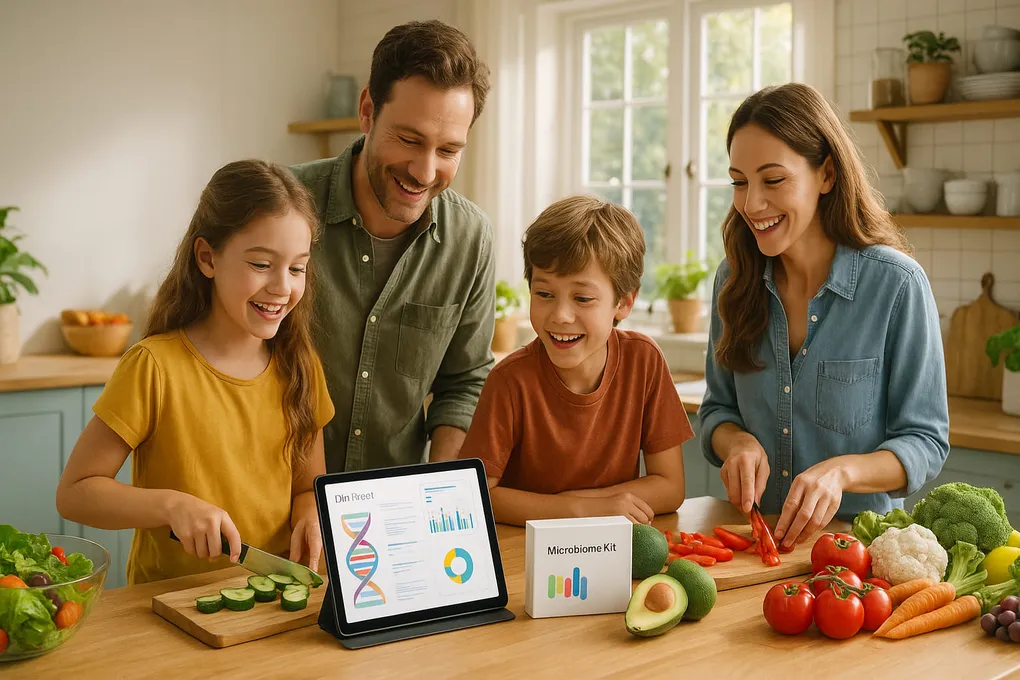The Future of Personalized Nutrition and Epigenetic Health

Personalized nutrition used to sound like science fiction. Today, it’s arriving in our mailboxes as DNA reports, microbiome kits, and wearable trackers. The future of methylation care is moving toward precision—matching interventions to each child’s genetic blueprint, microbiome signals, and lifestyle patterns. The best part? Families who master the basics now will ride the wave with confidence instead of overwhelm.
The pillars of personalized methylation care
- Genomics – Understanding SNPs (MTHFR, COMT, MTRR, BHMT) to tailor nutrient forms and doses.
- Epigenomics – Tracking methylation markers that change with stress, sleep, and nutrition.
- Transcriptomics – Observing which genes are actively expressing through RNA analysis.
- Metabolomics – Measuring metabolites (organic acids, neurotransmitters) that reflect current physiology.
- Microbiomics – Mapping gut flora to adjust fiber, probiotic strains, and targeted supplements.
- Wearable data – Sleep trackers, HRV monitors, and continuous glucose monitors providing immediate feedback.
Emerging tools on the horizon
- At-home epigenetic clocks that show biological age and response to lifestyle changes PMCID: PMC7072187.
- AI-driven meal planners that integrate food preferences, allergies, and methylation markers into weekly menus.
- Digital twins—personalized models that simulate how a child might respond to nutritional changes before implementing them.
- Precision probiotics designed based on stool analysis to boost specific folate- or choline-producing strains.
- Continuous micronutrient sensors currently in development to detect real-time vitamin trends.
How families can prepare today
Collect reliable data
- Symptom journals tracking energy, mood, digestion, sleep, and exposures.
- Family health timelines noting major stressors, illnesses, and interventions.
- Meal tracking focusing on patterns rather than strict calorie counts.
- Lab records stored in a shared digital folder for easy reference.
Strengthen fundamentals
No device replaces:
- Whole-food meals rich in methyl donors and antioxidants
- Consistent sleep and downtime
- Movement tailored to the child’s energy profile
- Emotional safety and strong relationships
Technology amplifies these basics; it doesn’t substitute them.
Build a responsive care team
- Primary care provider comfortable collaborating with nutrition and functional specialists
- Integrative dietitian or nutritionist interpreting genomic and microbiome data
- Mental health professional supporting behavior change and emotional processing
- Health coach or family systems therapist to sustain routines
Look for practitioners who communicate transparently, respect parental intuition, and plan interventions in manageable phases.
Ethical questions to consider
- Data privacy – Understand how companies store genetic and microbiome data.
- Equity – Advocate for access to personalized care across socioeconomic lines.
- Informed consent – Engage older children in decisions about testing and interventions.
- Avoiding perfectionism – Use data as guidance, not as pressure to optimize every second.
Sample roadmap for adopting personalized tools
- Year 1: Foundations – Dial in nutrition, sleep, movement, and stress routines. Start symptom journaling.
- Year 2: Baseline testing – Run homocysteine, organic acids, micronutrient panels, and stool analysis.
- Year 3: Genetic insights – If desired, add SNP testing to tailor supplements (with counseling).
- Year 4: Epigenetic monitoring – Evaluate methylation markers (biological age clocks, SAMe/SAH ratio). Adjust lifestyle and track changes.
- Year 5: Advanced personalization – Integrate wearable data, trial AI-driven meal planning, and continue iterative adjustments.
This timeline is flexible; move slower or faster based on your child’s needs, resources, and interest.
Keeping humanity at the center
Personalized nutrition is powerful, but so is a warm hug after a tough day. The most effective plans combine data with empathy:
- Use information to enhance—not replace—connection.
- Celebrate progress markers that matter to your child (better sleep, calmer afternoons, creative breakthroughs).
- Teach them to interpret their own signals, fostering body literacy and self-advocacy.
Heart to heart
The future of methylation care is exciting, but the heart of the work remains the same: nourish, listen, adjust. Marry the wisdom of whole foods and daily rhythms with the clarity of personalized data, and you’ll raise kids who know how to thrive in any era.
References
- Topol EJ. “Individualized medicine from prewomb to tomb.” PMC7072187. https://pmc.ncbi.nlm.nih.gov/articles/PMC7072187/
- Lo MT et al. “Epigenetic biomarkers for precision health.” PubMed 33889033. https://pubmed.ncbi.nlm.nih.gov/33889033/
- Mills S et al. “Precision nutrition and the microbiome.” PMC7453201. https://pmc.ncbi.nlm.nih.gov/articles/PMC7453201/
About MethylMagic
MethylMagic is a nutrition researcher specializing in methylation, ADHD, and autism support. With over a decade of experience in pediatric nutrition, they help families optimize their children's health through evidence-based nutritional strategies and practical parenting approaches.